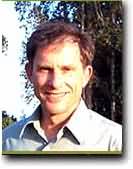Thought Leaders 2
Peter Barnes (Co-founder of Working Assets)
 Peter Barnes offers a solution: protect the commons by giving it property rights and strong institutional managers.
Peter Barnes offers a solution: protect the commons by giving it property rights and strong institutional managers.
Barnes shows how capitalism—like a computer—is run by an operating system. Our current operating system gives too much power to profit-maximizing corporations that devour our commons and distribute most of their profit to a sliver of the population. And government—which in theory should defend our commons—is all too often a tool of those very corporations.
Barnes proposes a revised operating system—Capitalism 3.0—that protects the commons while preserving the many strengths of capitalism as we know it. His major innovation is the commons trust—a market-based entity with the power to limit use of scarce commons, charge rent, and pay dividends to everyone. Capitalism 3.0 offers a practical alternative to our current flawed economic system. It points the way to a future in which we can retain capitalism’s virtues while mitigating its vices.
Building the Commons Sector
Municipal wi-fi
The Internet is the sidewalk of the twenty-first century, so it’s not surprising that cities are starting to build high-speed wireless networks the way they once built streets. Many operate wireless “hot zones” that offer free access over dozens of blocks. In San Francisco and New Orleans, free access may even be citywide. Other cities, like Philadelphia, are rolling out low-cost service citywide.
Air trusts
While the federal government dallies on climate change, several states are taking action. Most advanced is the Regional Greenhouse Gas Initiative, launched by seven northeastern states from Maine to Delaware. Their plan will limit carbon dioxide emissions from power plants and require utilities to hold emission permits.
An American Permanent Fund
An American Permanent Fund would be the centerpiece of the new commons sector proposed in this book. It’s a way to fix, or at least ameliorate, capitalism’s flaw of concentrating private property among the top 5 percent of the population. It would do this, like the Alaska Permanent Fund, by distributing income from common property to every citizen equally. This would add a third set of “pipes” through which income would flow to Americans, the first two being wages and private property income.
A spectrum trust
A spectrum or airwaves trust would have a distinct mission: to reduce the influence of corporations on our democracy. Broadcasters would pay for their licenses, which they now receive free, with revenue going to a nonpartisan trust. That trust would allocate funds to political candidates for the purchase of TV and radio ads.
A global carbon trust
With a global carbon trust, national governments would recognize that, just as they can delegate internal trusteeship duties to trusts, so should they delegate global trusteeship duties. The alternative is paralysis in the face of clear and present danger. A global carbon trust would be governed by a smallish board of trustees and a general membership consisting of all signatory nations. Once trustees are appointed, their loyalty would shift from individual nations or regions to future generations. This is critical. The trustees would decide, based on peer-reviewed scientific evidence, where to set yearly global caps on carbon emissions. Each year, they’d issue tradeable carbon emission permits up to that year’s limit. They would make decisions by majority vote, with no vetoes.
For more information: www.capitalism3.com
